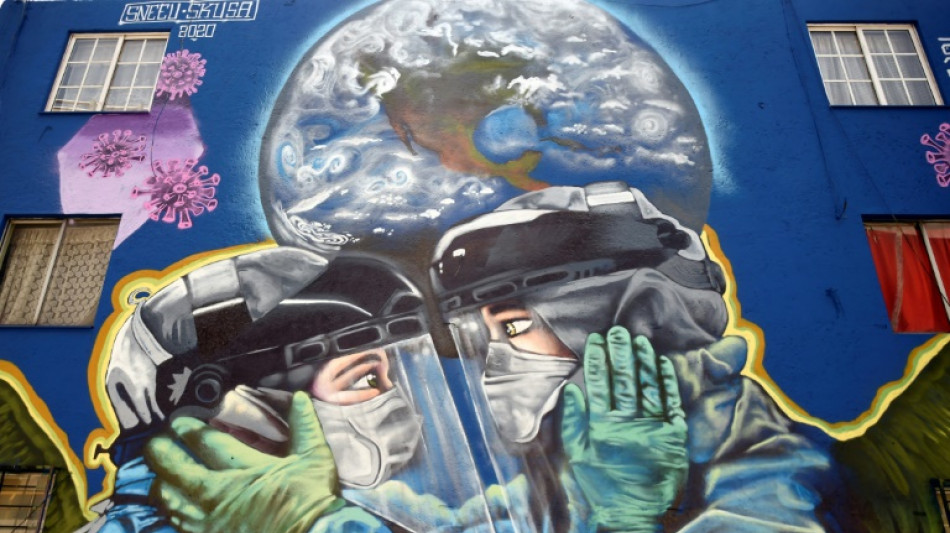
-
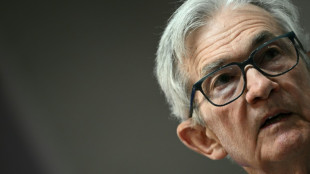 US Fed starts rate meeting under cloud of tariff uncertainty
US Fed starts rate meeting under cloud of tariff uncertainty
-
Trump's Aberdeen course to host revived Scottish Championship
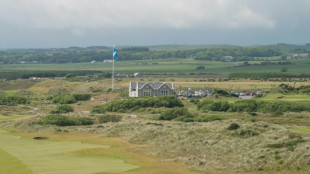
-
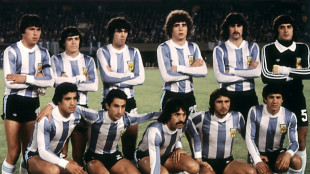 Argentina's 1978 World Cup winner Galvan dies
Argentina's 1978 World Cup winner Galvan dies
-
French lawmakers want Dreyfus promoted 130 years after scandal
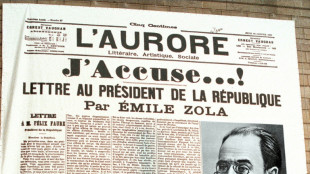
-
 AFP Gaza photographers shortlisted for Pulitzer Prize
AFP Gaza photographers shortlisted for Pulitzer Prize
-
Cristiano Ronaldo's eldest son called up by Portugal Under-15s

-
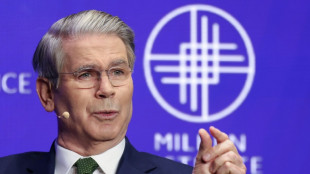 Stocks diverge as traders await Fed rates meeting
Stocks diverge as traders await Fed rates meeting
-
Tesla sales fall again in Germany as drivers steer clear of Musk
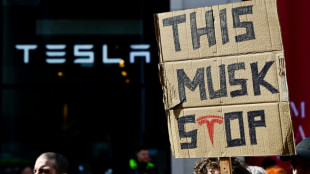
-
 Radiohead's Jonny Greenwood says shows cancelled after 'credible threats'
Radiohead's Jonny Greenwood says shows cancelled after 'credible threats'
-
Hamas says Gaza truce talks pointless as Israel wages 'hunger war'

-
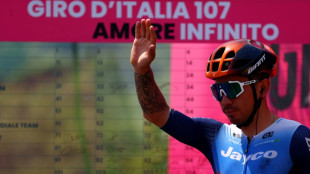 Aussie cycling star Ewan announces shock retirement
Aussie cycling star Ewan announces shock retirement
-
Blow for Germany's Merz as he loses first-round vote for chancellor
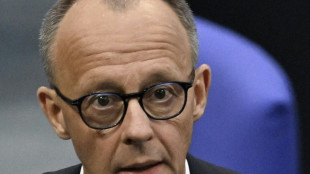
-
 EU to lay out plan to cut last Russian gas supplies
EU to lay out plan to cut last Russian gas supplies
-
Food delivery app DoorDash agrees to buy peer Deliveroo
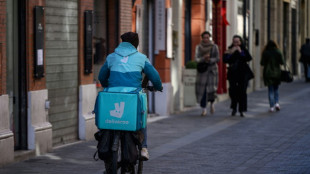
-
 Zhao's world championship win will take snooker to 'another level': sport's chief
Zhao's world championship win will take snooker to 'another level': sport's chief
-
Ukraine fires drones on Moscow days before Red Square parade
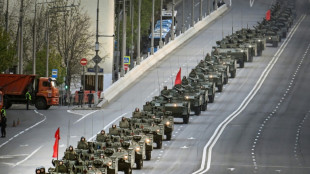
-
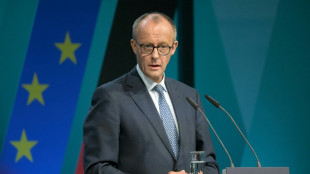 Blow for Merz as he misses majority in first vote for chancellor
Blow for Merz as he misses majority in first vote for chancellor
-
Putin gears up for 'grandest' Victory Day amid Ukraine conflict
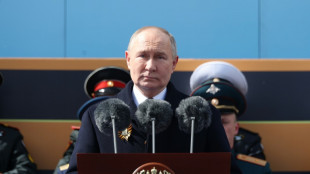
-
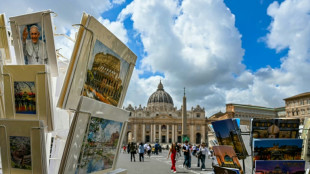 Cardinals to move into Vatican on eve of conclave
Cardinals to move into Vatican on eve of conclave
-
Romania names interim premier as turmoil deepens
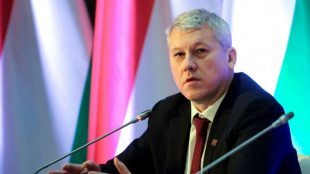
-
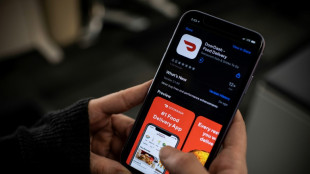 DoorDash agrees £2.9 billion takeover of Deliveroo
DoorDash agrees £2.9 billion takeover of Deliveroo
-
Dollar recovers some losses, stocks mixed as traders eye tariff deals
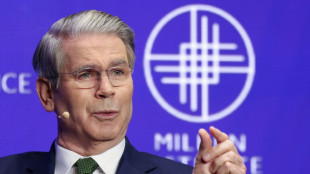
-
 Hamas says no point in further Gaza truce talks
Hamas says no point in further Gaza truce talks
-
'Aussiewood' courts Hollywood as Trump film tariffs loom
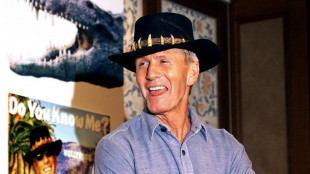
-
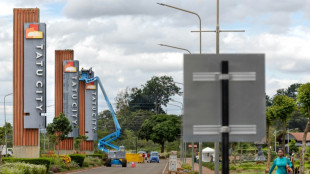 How a privately owned city in Kenya took on corrupt officials
How a privately owned city in Kenya took on corrupt officials
-
Ozempic slimming craze sweeps Kosovo despite side effects
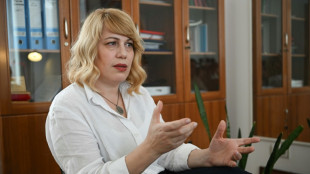
-
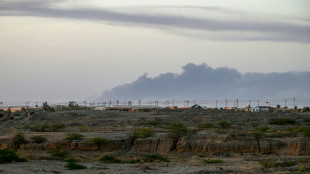 Drone strikes rock Port Sudan in third day of attacks
Drone strikes rock Port Sudan in third day of attacks
-
US President Trump and Canada's Carney set for high-stakes meeting
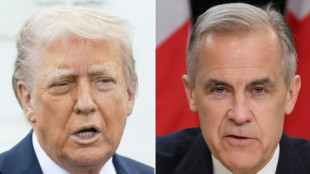
-
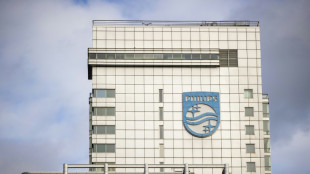 Philips turns in a profit but China, tariffs weigh
Philips turns in a profit but China, tariffs weigh
-
Drones hit Port Sudan airport in third day of attacks
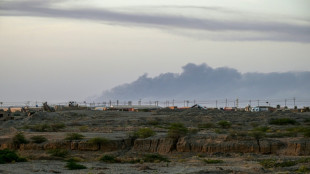
-
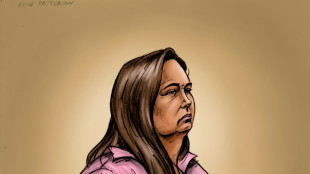 Australian mushroom murder suspect rejected help preparing meal: witness
Australian mushroom murder suspect rejected help preparing meal: witness
-
Jokic-inspired Nuggets stun Thunder, Knicks down Celtics
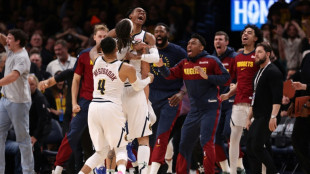
-
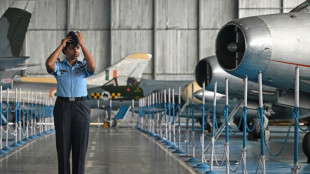 India's woman fighter pilot trailblazer eyes space
India's woman fighter pilot trailblazer eyes space
-
'Shared dream': China celebrates Zhao's world snooker breakthrough

-
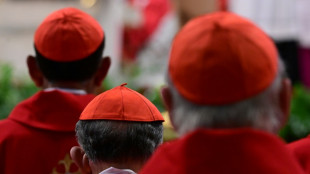 Wait for Vatican white smoke fires up social media
Wait for Vatican white smoke fires up social media
-
Sinner leading the charge in golden era for Italian tennis
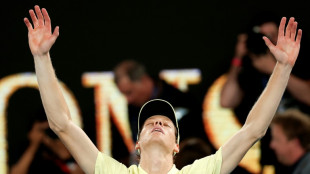
-
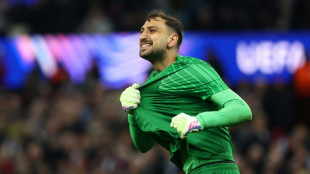 Donnarumma stands tall on PSG's Champions League run
Donnarumma stands tall on PSG's Champions League run
-
Dollar recovers some losses, stocks gain as traders eye tariff deals
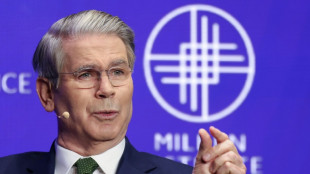
-
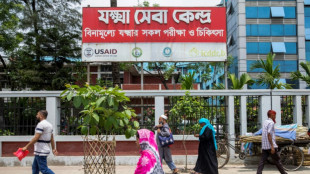 US aid cuts push Bangladesh's health sector to the edge
US aid cuts push Bangladesh's health sector to the edge
-
Prayers, pride in Philippine papal contender's hometown

-
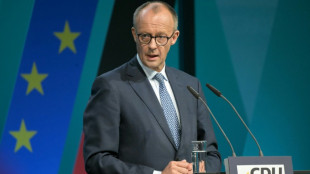 Germany's Merz to launch new govt in times of Trump turbulence
Germany's Merz to launch new govt in times of Trump turbulence
-
Brunson sparks Knicks in comeback win over Celtics

-
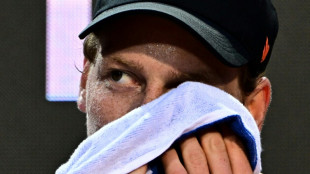 All roads lead to Rome Open for Sinner after doping ban
All roads lead to Rome Open for Sinner after doping ban
-
French Resistance members reunited 80 years after end of WWII

-
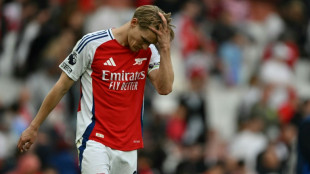 Arsenal must 'stick together' in PSG showdown: Odegaard
Arsenal must 'stick together' in PSG showdown: Odegaard
-
New Zealand PM proposes banning under-16s from social media

-
 Patriot Payroll Named "Best Customer Support," "Best Value," and More by Gartner Digital Markets
Patriot Payroll Named "Best Customer Support," "Best Value," and More by Gartner Digital Markets
-
Architectural Plan of APOZ is Being Submitted to the County

-
 Envirotech Vehicles, Inc. Launches Redesigned Website To Highlight Electric Vehicle Offering
Envirotech Vehicles, Inc. Launches Redesigned Website To Highlight Electric Vehicle Offering
-
Fortitude Gold Declares May 2025 Monthly Dividend


WHO countries strike landmark agreement on tackling future pandemics
Years of negotiations culminated early Wednesday with countries agreeing the text of a landmark accord on how to tackle future pandemics, aimed at avoiding the mistakes made during the Covid-19 crisis.
After more than three years of talks and one last marathon session, weary delegates at the World Health Organization's headquarters finally sealed the deal at around 2:00 am (0000 GMT) Wednesday.
"Tonight marks a significant milestone in our shared journey towards a safer world," said WHO chief Tedros Adhanom Ghebreyesus.
"The nations of the world made history in Geneva today."
Five years after the emergence of Covid-19, which killed millions of people, devastated economies and upturned health systems, a sense of urgency hung over the talks, with new threats lurking -- including H5N1 bird flu, measles, mpox and Ebola.
The final stretch of the talks also took place under the shadow of cuts to US foreign aid spending and threatened tariffs on pharmaceuticals.
- 'It's adopted' -
Right until the last minute, disagreement lingered over a few thorny issues.
Negotiators stumbled over the agreement's Article 11, which deals with transferring technology for pandemic health products towards developing nations.
During the Covid-19 pandemic, poorer states accused rich nations of hoarding vaccines and tests.
Countries with large pharmaceutical industries have strenuously opposed the idea of mandatory tech transfers, insisting they must be voluntary.
But it appeared the obstacle could be overcome by adding that any transfer needed to be "mutually agreed".
The core of the agreement is a proposed Pathogen Access and Benefit-Sharing System (PABS), aimed at allowing the swift sharing of pathogen data with pharmaceutical companies, enabling them to quickly start working on pandemic-fighting products.
In the end, the 32-page agreement was entirely highlighted in green, indicating all of it had been fully approved by WHO member states.
"It's adopted," negotiations co-chair Anne-Claire Amprou announced, to thunderous applause.
"In drafting this historic agreement, the countries of the world have demonstrated their shared commitment to preventing and protecting everyone, everywhere, from future pandemic threats."
The finalised text will now be presented for sign-off at the WHO's annual assembly next month.
- 'More equity' -
As intense talks in corridors and closed rooms drew towards an end late on Tuesday, Tedros told reporters he thought the draft was "balanced", and that a deal would bring "more equity".
While taking measures to coordinate pandemic prevention, preparedness and response could be costly, "the cost of inaction is much bigger", he insisted.
"Virus is the worst enemy. (It) could be worse than a war."
The United States, which has thrown the global health system into crisis by slashing foreign aid spending, was absent.
US President Donald Trump ordered a withdrawal from the United Nations' health agency and from the pandemic agreement talks after taking office in January.
However, the US absence, and Trump's threat to slap steep tariffs on pharmaceutical products, still hung over the talks, making manufacturers and governments more jittery.
But in the end, countries reached consensus.
- 'Real work begins now' -
Looking ahead towards implementation, the leading pharma lobby said intellectual property and legal certainty would be essential if the industry was to invest in high-risk research and development in the next crisis.
"The pandemic agreement is a starting point," said David Reddy, director general of the International Federation of Pharmaceutical Manufacturers and Associations, which participated in the talks.
"We hope that in subsequent negotiations, member states maintain the conditions for the private sector to continue innovating against pathogens of pandemic potential."
Many saw the approval of the text as a victory for global cooperation.
"At a time when multilateralism is under threat, WHO member states have joined together to say that we will defeat the next pandemic threat in the only way possible: by working together," said New Zealand's former prime minister Helen Clark, co-chair of the Independent Panel for Pandemic Preparedness and Response.
As the congratulatory speeches continued on towards daybreak at the WHO HQ, Eswatini's representative cautioned that "whilst we celebrate this moment, we need not rest on our laurels.
"The real work begins now."
Y.Kobayashi--AMWN